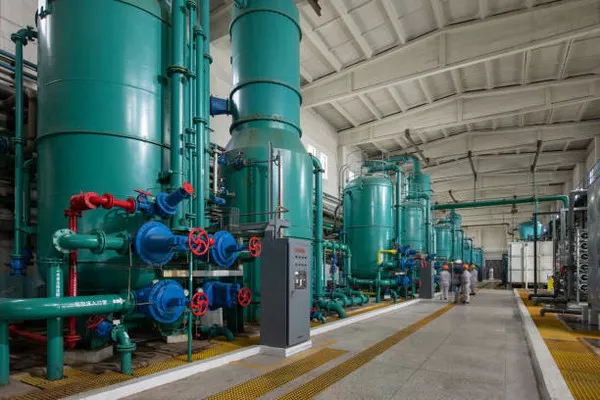In the sweltering heat of summer, a functioning air conditioning system is crucial for comfort and productivity. However, if your AC compressor shuts off after only a few minutes of operation, it can be frustrating and inconvenient. This issue not only affects your comfort but also raises concerns about potential damage to the system. Understanding the reasons behind this problem and knowing how to address it is essential for maintaining a properly functioning air conditioning unit.
Understanding the AC Compressor
The AC compressor plays a pivotal role in the cooling process of your air conditioning system. It compresses refrigerant gas, raising its temperature and pressure, and then pumps it through the system where it releases heat and cools down to a liquid state. This cooled liquid then passes through an evaporator coil to absorb heat from indoor air, which is then circulated back into your living space as cooler air.
Common Reasons for AC Compressor Shutdowns
Several factors can contribute to your AC compressor shutting off prematurely. Identifying these factors requires a systematic approach to troubleshooting:
1. Thermostat Issues
A malfunctioning thermostat can incorrectly sense the indoor temperature, causing it to prematurely signal the AC compressor to shut off. This issue can be due to a faulty thermostat sensor or improper calibration.
2. Electrical Problems
Electrical issues such as a tripped circuit breaker, a blown fuse, or loose wiring connections can disrupt the power supply to the compressor, leading to its shutdown. Electrical problems often require professional diagnosis and repair to ensure safety and proper functionality.
3. Refrigerant Leaks
Low refrigerant levels due to leaks can cause the compressor to overheat and shut down as a protective measure. Refrigerant leaks not only compromise the cooling efficiency but also pose environmental hazards and should be promptly addressed by a certified technician.
4. Dirty or Blocked Condenser Coils
Accumulated dirt, debris, or vegetation around the outdoor condenser unit can restrict airflow, causing the compressor to overheat and shut down. Regular cleaning and maintenance of condenser coils are necessary to ensure optimal performance and prevent such issues.
5. Compressor Overload
Excessive strain on the compressor, often due to running for extended periods without adequate rest intervals or in extremely hot weather conditions, can lead to overheating and automatic shutdown. Proper sizing and installation of the AC unit relative to the space it cools are crucial to prevent overload issues.
6. Faulty Capacitor or Contactor
Capacitors and contactors are electrical components that regulate the startup and operation of the compressor. If these components malfunction or fail, they can disrupt the compressor’s operation, causing it to shut down unexpectedly.
7. Clogged Air Filters
Dirty or clogged air filters restrict airflow, causing the evaporator coil to freeze up and triggering the AC compressor to shut down. Regularly replacing or cleaning air filters is essential for maintaining proper airflow and preventing such issues.
8. Improper Installation
Incorrect installation of the air conditioning unit, including inadequate refrigerant charging or improper sizing of ductwork, can lead to operational inefficiencies and premature compressor shutdowns. Professional installation by qualified technicians is crucial to avoid such issues.
Steps to Diagnose and Address AC Compressor Shutdowns
When troubleshooting AC compressor shutdowns, a systematic approach is essential to pinpoint the exact cause and implement appropriate solutions:
Step 1: Check Thermostat Settings and Calibration
Verify that the thermostat settings are correctly configured and that the thermostat sensor is functioning properly. Consider recalibrating the thermostat if necessary or replacing it if it’s defective.
Step 2: Inspect Electrical Components
Examine the circuit breakers, fuses, and wiring connections for any signs of damage or malfunction. Reset tripped breakers and replace blown fuses as needed. Ensure all electrical connections are tight and secure.
Step 3: Evaluate Refrigerant Levels
Hire a qualified technician to inspect the system for refrigerant leaks and recharge the system to the manufacturer’s specifications if necessary. Addressing refrigerant issues promptly helps prevent compressor damage and ensures efficient cooling performance.
Step 4: Clean and Maintain Condenser Coils
Regularly clean the condenser coils and remove any obstructions that could impede airflow. Trim vegetation and clear debris around the outdoor unit to promote adequate airflow and prevent overheating.
Step 5: Monitor Compressor Operation
Observe the compressor during operation to detect any unusual noises, vibrations, or signs of overheating. Address any abnormal symptoms promptly to prevent further damage and ensure optimal system performance.
Step 6: Schedule Regular Maintenance
Establish a routine maintenance schedule with a qualified HVAC technician to inspect and service your air conditioning system annually. Regular maintenance helps identify potential issues early and ensures efficient operation throughout the cooling season.
See Also THE ESSENTIAL GUIDE TO CHOOSING THE OIL FOR AIR COMPRESSOR
Conclusion
Understanding why your AC compressor shuts off after a few minutes is crucial for maintaining a comfortable indoor environment and prolonging the lifespan of your air conditioning system. By systematically diagnosing potential causes such as thermostat issues, electrical problems, refrigerant leaks, and maintenance neglect, you can implement appropriate solutions to restore optimal functionality. Investing in regular maintenance and timely repairs not only enhances cooling efficiency but also minimizes the risk of costly repairs or premature system failure. Prioritize professional assistance when needed to ensure safe and effective resolution of AC compressor shutdown issues. By taking proactive measures, you can enjoy reliable and efficient cooling performance throughout the summer months and beyond.

